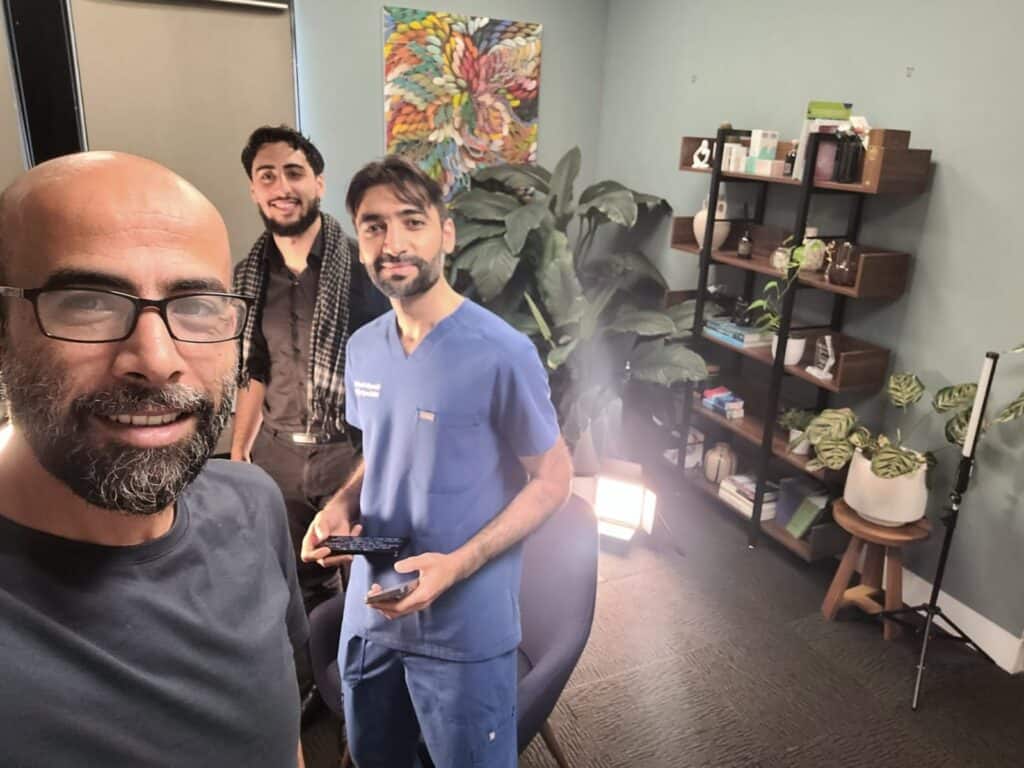Melbourne-based charity Rahma Health, which provides evidence-based health information to Arabic-speaking communities through digital platforms, has won two Telstra Best of Business Awards.
The Victorian charity, which operates globally and is staffed exclusively by people with lived experience as refugees and migrants, uses community co-design for all content.
Founded by Dr Naba Alfayadh, a General Practice Registrar at the Royal Australian College of General Practitioners, Rahma Health been accessed over two million times using a lean technology stack it says is focused on “user behaviour analytics rather than more costly health IT infrastructure”.
“When I was pregnant in 2020, I had access to world-class resources in English. Other women whose primary language is Arabic were being told to hit their children and use castor oil to induce labour,” Dr Alfayadh said. “My heart broke for these mothers. They were doing their absolute best to care for their babies, but they were being given information that could harm them. That’s when I realised the enormous gap in culturally safe, evidence-based health
information for women,” Dr Alfayadh said.
Rahma Health’s innovative approach to technology – that custom-built analytics models and strategic technology deployment can achieve superior patient engagement and measurable health outcomes – earned it awards in the categories of Championing Health and Accelerating Women for Victoria. The team will progress to the National Awards on November 20.
Lived experience
The organisation’s technology strategy reflects leadership by those with direct understanding of refugee information needs.
Mohannad Dahalan, Head of Operations and Technology and Rahma’s only full-time employee, arrived in Australia just one year ago from Gaza, where he was a CEO with 19 employees.

“Our technology and data analytics streams are led by a newly arrived refugee, Mohannad Dahalan, who is the Head of Operations and Technology at Rahma,” Dr Alfayadh said. “His insights about the Arabic-speaking community globally and personal experience as a newly arrived refugee have embedded direct lived-experience insights into all the work we do.”
Dr Mariam Hassan, FRACGP, serves as Founding Board Director – an Egyptian-Australian medical doctor and Monash University alumna affiliated with the Australian Islamic Medical Association who “volunteered countless hours during her own maternity leave to connect newly arrived refugees with healthcare”.
The team includes Kawthar Al Tamimi, who holds a Master of Education from Melbourne University and has volunteered every Saturday for 15 years at a community school teaching refugee children.
Abrar Alsagheer, a software engineer, created the Rahma Health website that has become the central platform supporting families worldwide to access reliable health information.
World-first innovation
The technology approach enabled creation of the world’s first comprehensive Arabic antenatal education video series – a collaboration between four countries and 22 organisations.
The series covers contraception, fertility, pregnancy, labour, postpartum care, mental health, and infant care. It was developed in partnership with medical professionals including Dr Yousif Alyousif from Melbourne IVF, Dr Haider Najjar from Create Health and Peninsula Hospital, and Dr Sahar Abdullah from Northpark Private Hospital and Eastern Health.
“Technology enabled us to coordinate globally and track engagement from Melbourne to refugee camps in Jordan,” Dr Alfayadh said. “Women accessing the videos through our website, YouTube, the Royal Women’s Hospital platform, or partner organisations — we can see all of it in our tracking systems.”
Rahma’s resources are now embedded on major platforms, including:
- Royal Women’s Hospital website
- Raising Children Network
- Healthdirect and Pregnancy Birth and Baby
- University Hospital Sharjah (UAE)
- Rotunda Hospital Dublin (Ireland)
Rahma says the integration required no expensive API development — “just collaboration agreements and content sharing facilitated by clear analytics showing the value proposition”.
The technology stack
Rather than implementing a traditional LMS or content management system, Rahma Health built internal models using:
- Custom Excel and Google Sheets models that automatically track engagement metrics across multiple platforms, inform content strategy, monitor audience diversity, and generate board reports
- Google Analytics and Meta Analytics to track user behaviour and content performance in real-time
- SEO analytics to optimise discoverability for communities searching for health information
- Careful AI application for grant writing and English content, while recognising limitations for gendered languages
- Internally created backend systems for content management and performance tracking
“We built our technology around user behaviour, not around vendor solutions,” Dr Alfayadh said. “When we saw mental health videos attracting 123,000 views, our models flagged it immediately and we invested more resources in that content area.”
Data-driven clinical outcomes
The analytics approach has enabled measurable health improvements. An evaluation with the Murdoch Children’s Research Institute and Royal Children’s Hospital, led by Associate Professor Elisha Riggs who has 15 years of experience working with refugee communities, is currently underway to formally assess impact on health literacy and behaviour change.
“Our operational costs are remarkably lean because we’re not paying for enterprise software,” Dr Alfayadh said. “We invest in content creation and community engagement instead. We were able to reach our first million users on just $65,000.”

